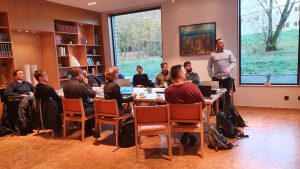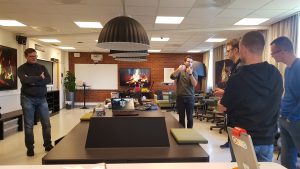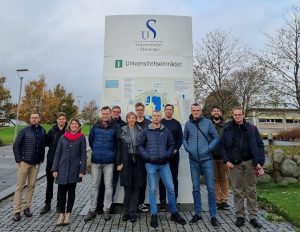The 7th International Meeting of the Erasmus + project DIG-MAN “Integration of digital tools into product development and manufacturing education” took place in Stavanger, Norway, on November 04-05. For more than a year, the project implementers carried out the activities virtually, so it was useful to meet face-to-face. A good working atmosphere at the University of Stavanger (UiS), sincere well-known colleagues and those, who have recently joined the project, a cosy and beautiful city, motivated project participants from five EU countries to work actively, summarises the activities already carried out and plan for the final project. As usual in such meetings, the organizers UiS introduced to the university, the study programmes, the scientific experimental base that will be used to solve the tasks envisaged in the project activities. The University of Stavanger provides excellent opportunities for students to work both independently and in teams. There is a lot of space for this kind of activity. During the visit, a didactic education centre located on the university premises was visited. At this centre, prospective educators work with children of all school ages to stimulate their interest in engineering, creativity and technology. All participants acknowledged that the establishment of such centres in all universities would encourage the young generation to study engineering.
After getting acquainted with the university visit, the project participants continued their work step by step, analysing and summarizing the work already done, linking it with the work being done and planned for the future. A lot of attention was paid to the student training planned for April 2022 at the Estonian University of Life Sciences in Tartu. Project coordinator Tõnu Lemmet informed that during the five-day training, four international student teams will be gathered to solve the tasks created in the project. These trainings will require the special involvement of all institutions, in particular in the selection of students, the subsequent format of the event and the organisation of the mobility of students and accompanying teachers. Project participants have high hopes that the global pandemic will not prevent these trainings from happening live.
At the end of the partner meeting, there was an optimistic mood, although the very idea of the project is very focused on digitisation and automation, and the partners agreed no one could change live communication.



